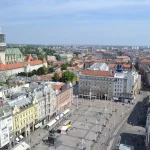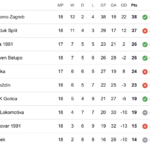The study showed that corruption and emigration were interrelated.
Jurić compared corruption and migration trends from 2012 to 2020, notably the number of Croatians who emigrated to Germany, the country where most Croatians go to in search of work and a better livelihood, and the ranking of Croatia in the global corruption index, and found that corruption was more pronounced when the number of people who left the country was higher. Croatia ranked 63rd among 180 countries included in the corruption index in 2019 and 2020, and 50th before the emigration wave reached its peak.
“Common sense says that if people who are not involved in corruption networks emigrate and those who stay are involved in such networks, corruption activities will be even easier to carry out and more frequent. If critics leave, all the better and easier for those criticised,” Jurić says, adding that corruption is deeply rooted in Croatian society and has become a parallel system that undermines the economy.
“Corruption has done even more damage to the Croatian national identity, the sense of unity and solidarity, and to Croatian culture in general than it has done to the economy, which is unquestionably enormous. The main negative effect of corruption affected the country’s human resources and political stability. In Croatian society, corruption has become a privilege of the elites, but so-called major corruption, political corruption and clientelism should not be confused with so-called civil corruption.
“So-called elite corruption has given rise to a special phenomenon in society which could be called ‘a revolt of the elites’. It is the elites that use the media for their everyday protests against the media, citizens and institutions, making citizens accustomed to the practice that they should not express their dissatisfaction with politicians, but that politicians should express their dissatisfaction with them,” Jurić said.
The study shows that 65.3 percent of 178 small, medium and large companies polled said that corruption has been on the rise in the last five years, while 32.4 percent believe that there has been no significant change.
For more about politics in Croatia, follow TCN’s dedicated page.











